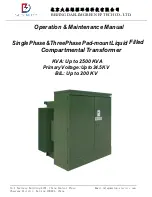
Page 41 of 90
CCT24
for routers - 0x00 0xNN 0xFF, where NN is the NwkID of the router.
for remotes - 0xMM 0xNN 0xFF, where NN is the NwkID of the parent router and MM is the
network address of the remote.
TxStatus = Result of last
TxData
operation
(1 byte)
0x00 = Acknowledgement received
0x01 = No acknowledgement received
0x02 = Not linked (remote)
0x03 = No ACK due to recipient holding for flow control
RSSI = 2’s complement value in dBm, with a range of -128 (0x80) to +125 (0x7D) dBm
(1 byte);
large positive RSSI values will not occur under ordinary circumstances. RSSI values 126 (0x7E)
and 127 (0x7F) have special meaning:
0x7F = No RSSI measured because no ACK was received
0x7E = No RSSI because packet was routed
NwkID = Network identifier of network joined
(1 byte)
BaseMacAddr = MAC address of base that the remote joined
(3 bytes).
AnnStatus = Status announcement
(1 byte).
Additional fields are also reported
depending on the status code:
Status code
Additional fields
0xA0 = Radio has completed startup initialization
none
0xA2 = Base: a child has joined the network
MacAddr, Reserved, Range
0xA3 = Remote: joined a network, ready for data
NwkID, BaseMacAddr, Range
0xA4 = Remote: exited network (base is out of range)
NwkID
0xA5 = Remote: the base has rebooted
none
0xA7 = Base: remote has left the network.
MacAddr
0xA8 = Base: heartbeat received from router or remote MacAddr, NwkAddr, NwkID,
ParentNwkID, BeaconRSSI, AvgTxAtt-
mpts, ParentRSSI, Range
0xA9 = Base: router heartbeat timeout
NwkID
New status code field definitions:
ParentNwkID
= Network ID of parent
(1 byte)
BeaconRSSI
= Average power of received beacons
(1 byte)
ParentRSSI
= Average power of received heartbeat as reported by parent
(1 byte)
AvgTxAttempts = Average number of upstream transmit attempts per packet times 4
(1 byte)
Status codes for error conditions
Additional fields
E0 = Protocol error - invalid message type
none
E1 = Protocol error - invalid argument
none
E2 = Protocol error - general error
none
E3 = Protocol error - parser timeout
none
E4 = Protocol error - register is read-only
none
E8 = UART receive buffer overflow
none
E9 = UART receive overrun
none
EA = UART framing error
none
EE = Hardware error
none
















































